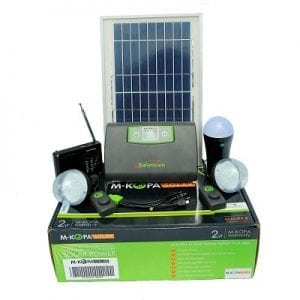
Agriculture
December 7, 2024
M-KOPA III Solar Home System
Read SolutionImplemented by
M-KOPA
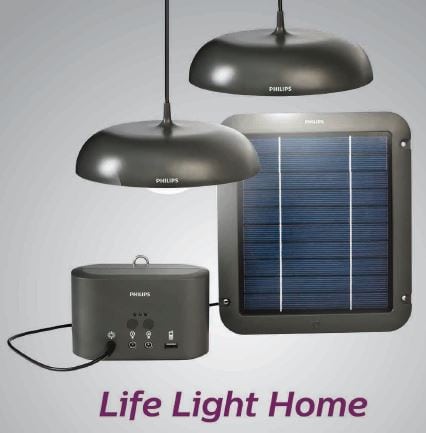
Updated on December 7, 2024
·Created on October 30, 2018
Philips Lifelight Home is a solar-powered system that features two lumens with 3 brightness settings and an in-built USB port for universal charging of mobile phones and other electronic devices.
Philips LifeLight Home is a solar-powered lighting system that comprises two pendant luminaires with 3 LED brightness settings (35, 75, 150 lm) and an in-built USB port for charging phones and other electronic devices. Powered by a 4 W external solar panel and with a Lithium-ion battery (4400 mAh, 3.7 V), it gives up to 20 hours of light when fully charged. Pay-As-You-Go functionality and Bluetooth communication can be added.
This product was developed by the Philips Africa Innovation Hub with its headquarter in Nairobi, Kenya. It is a center for developing innovations ‘in Africa-for Africa’ in the areas of healthcare, lighting and healthy living.
Target SDGs
SDG 7: Affordable and Clean Energy
SDG 8: Decent Work and Economic Growth
Market Suggested Retail Price
$98.37
Target Users (Target Impact Group)
Household
Distributors / Implementing Organizations
Philips in partnership with banks, telco companies and microfinance institutions to create financing opportunities for customers.
Competitive Landscape
Direct competitors include M-KOPA IV Solar Home System and Barefoot Connect 620.
Regions
Africa
Manufacturing/Building Method
Products are engineered in the Philips Africa Innovation Hub in Nairobi, Kenya, on mass customization.
Intellectural Property Type
Trademark
User Provision Model
This product is available directly from the manufacturer or for purchase online.
Distributions to Date Status
Distributed Solar Home Systems number is unknown, however, some case studies are reported on the Philips website.
Description of power outputs
1 USB
Description of light points
2 LEDs
Total lighting service (lumen-hours per solar-day)
525 lumen-hours per solar-day
Peak power rating (Wp)
4 Wp
Battery capacity (kWh; mAh)
4,400 mAh
Nominal battery voltage (V)
3.7 V
Battery type
Lithium ion
User replaceable battery (yes/no)
Yes
Remote system diagnostics (yes/no)
Yes
Payment structure
Pay-as-you-go
Mobile service required (yes/no)
No
Design Specifications
Design specifications include the 4 W Polycrystalline silicon solar panel, a Lithium-ion battery (4400 mAh, 3.7 V) with an integrated USD port, and the two solar lights with 150 lumens each and 3 light settings: 35, 75, 150 Lm.
Technical Support
This is a plug-and-play device with no special training required, however, Philips provides after-sales support and also offers skill development programs where community members learn how to properly maintain the lights. For specific technical support, contact the manufacturer.
Replacement Components
The product has a 2-year warranty covering manufacturing defects, however, according to Lightning Global, the battery is easily replaceable with common tools.
Lifecycle
The Solar Home system battery lifecycle is unknown, however, lumens maintain over 98% of original output after 2,000 hours of run time.
Manufacturer Specified Performance Parameters
In 2017, Philips was working in a new Solar Home plus system with three light points and extendable to five, with up to four USB outlets and two 12VDC outlets for powering electronic devices, such as fans or TVs. There is no further information about the progress on these performance targets.
Vetted Performance Status
When connected to the 3,8 Wp polycrystalline silicon module, the battery box powers the 150 Illuminance lamp for 4,8 hours and the 75 Illuminance lamp for 11 hours. Per day of solar charging, it is 3,5 hours for the 150 lm lamp and 7,6 hours for the 75 lm lamp, resulting in a total light output of 320 and 160 lumens, respectively. Total lightning service for this product is 1100 lumen-hours/solar-day for high brightness setting (150 lm lamp) and 1200 lumen-hours/solar-day for medium brightness setting (75 lm lamp).
Safety
This Solar Home System is a plug and play device, however, electrical installation and control guidelines provided by Philips must be followed to avoid electrical shocks.
Complementary Technical Systems
Philips also commercializes two additional solar-powered lanterns models: Philips LifeLight and Philips LifeLight Plus.
Academic Research and References
There is no academic research on this specific product, however the following paper gives a review on solar home systems for rural electrification:
Chaurey, A., Kandapal, T.C., A techno-economic comparison of rural electrification based on solar home systems and PV microgrids. 2010 Jun. Energy Policy. Volume 38, Issue 6, Pages 3118-3129.
LifeLight. n.d. Philips Lighting.
Francoeur, Renée. 2015. Philips’ LifeLight to Brighten More African Homes. Electrical Business. April 17, 2015.
Solar-Powered LED Luminaires from Philips Can Brighten the Homes of Millions. 2015. Signify.
Lighting Global. 2018. Solar Home System Kit Quality Standards, Version 2.5. Lighting Global.
Compliance with regulations
This product meets the Lighting Global Quality Standards for Solar Home System Kits. It was valid until the 31st of January in 2018. Since this product is discontinued there is no information about the renew on this permit.
Evaluation methods
Lighting Global verified the battery durability based in the switch and connector cycling, strain relief test and physical ingress protection test. This product meets the Lightning Global Quality Standards for battery durability.
Other Information
None

Agriculture
December 7, 2024
Implemented by
M-KOPA
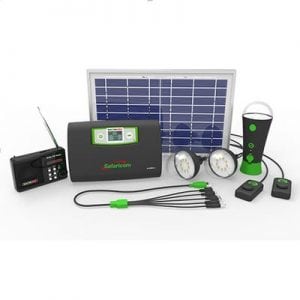
Agriculture
December 9, 2024
Implemented by
M-KOPA
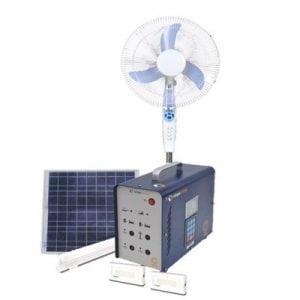
Agriculture
January 13, 2024
Implemented by
Simpa Networks
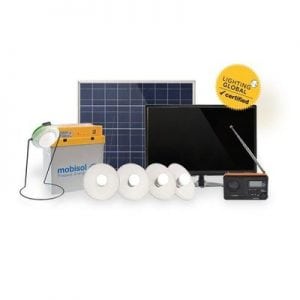
Agriculture
December 9, 2024
Implemented by
ENGIE Mobisol GmbH
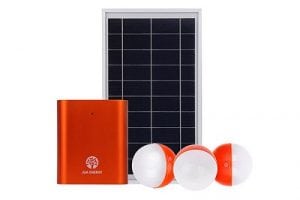
Agriculture
December 7, 2024
Implemented by
Jua Energy Co. Ltd.
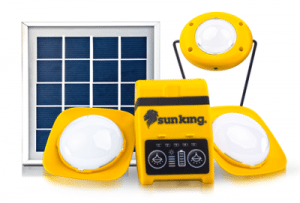
Agriculture
December 11, 2024
Implemented by
Sun King
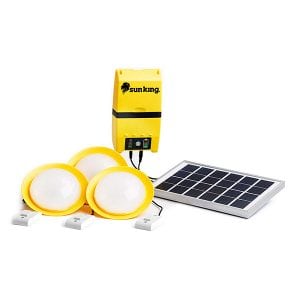
Agriculture
December 11, 2024
Implemented by
Sun King
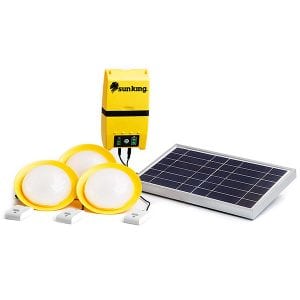
Agriculture
December 7, 2024
Implemented by
Sun King
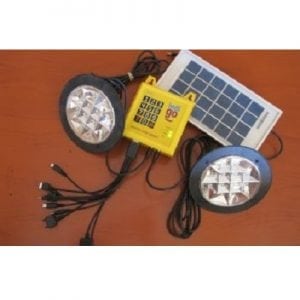
Agriculture
December 7, 2024
Implemented by
Azuri Technologies
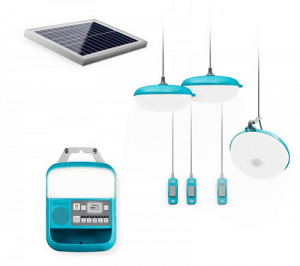
Agriculture
December 31, 2023
Implemented by
BioLite
Have thoughts on how we can improve?
Give Us Feedback